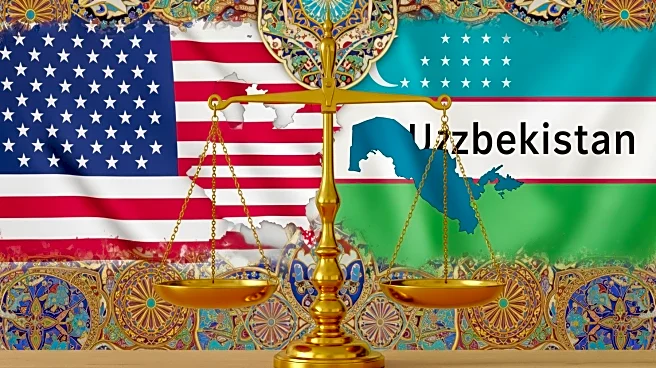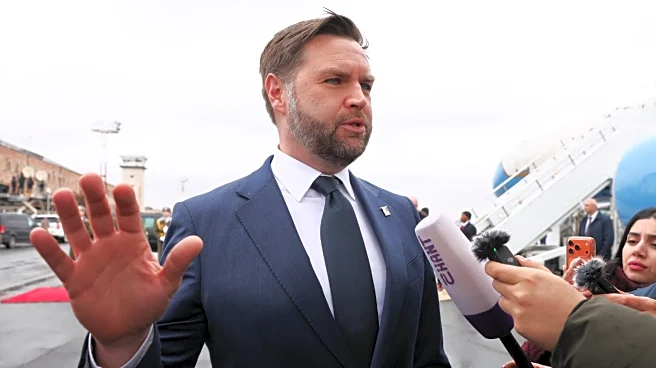What's Happening?
President Donald Trump has announced a significant trade deal with Uzbekistan, which is expected to generate over $100 billion in U.S. exports and Uzbek investments over the next decade. The announcement
followed a meeting between Trump and Uzbek President Shavkat Mirziyoyev, along with leaders from other Central Asian countries. The deal aims to diversify U.S. sources of raw materials, particularly rare earth elements, amidst restrictions from China, the primary supplier. This move marks a strategic engagement with Central Asia, traditionally influenced by Russia and China.
Why It's Important?
The trade deal with Uzbekistan is crucial for the U.S. as it seeks to secure alternative sources for critical minerals, reducing dependency on China. This agreement could bolster U.S. industries such as aviation, automotive, infrastructure, and technology, potentially leading to economic growth and job creation. It also signifies a geopolitical shift, enhancing U.S. influence in a region historically dominated by Russia and China, thereby altering the balance of power and economic dynamics in Central Asia.
What's Next?
President Trump has indicated that the U.S. will secure essential rare earths within 18 months through an emergency program. Secretary of State Marco Rubio plans to visit Central Asian countries next year, potentially strengthening diplomatic and economic ties. The deal may prompt reactions from China and Russia, who have vested interests in the region, possibly leading to strategic adjustments in their foreign policies.
Beyond the Headlines
The trade deal could have long-term implications for global supply chains, particularly in the tech and defense sectors reliant on rare earths. It may also influence U.S. foreign policy, encouraging further engagement with countries seeking to diversify their economic partnerships away from China and Russia.










